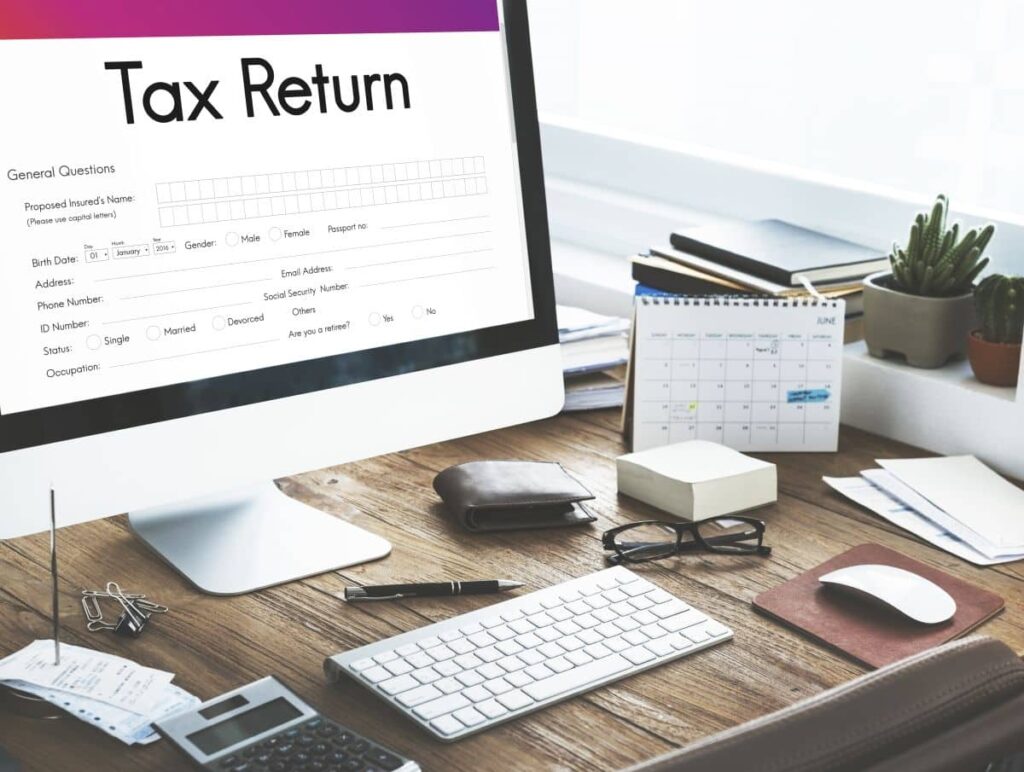Tax season can be a stressful time for many of us. With seemingly endless forms to fill out, regulations to remember and expenses to track, planning ahead is key to getting the most from your tax return. But don't worry - thankfully, there are strategies that you, as an individual taxpayer, can use to help reduce your overall tax burden and get the highest possible refund.
Our blog post on tax planning tips will cover all the basics you need to know about filing accurately and taking advantage of available deductions so that you keep more money in your pocket! So if you're ready, let's dive in and learn how you can make this year's taxes work for you!
Let's get started!
Windfall Gains Tax
The disputed new tax, known as the Windfall Gains Tax (WGT), will be implemented in Victoria on 1 July 2023. According to the WGT, a capital gains event will be provoked whenever there is an increase in the value of land caused by rezoning that is greater than $100,000.
The taxable value of the gain will be calculated as 62.5% of any uplift that is greater than $100,000 but less than $500,000 and as 50% of the taxable value of any uplift that is greater than $500,000.
The WGT is a tax that is levied against the landowners whose property is being rezoned. There are a few different exclusions that can be taken:
- At the moment of the rezoning, property that is capable of being utilised for residential purposes and up to 2 hectares of such residential land that are all owned by the same owner and were all rezoned by the same planning scheme amendment are considered residential land.
- In the context of rezoning, in order to rectify glaring or technical mistakes in the Victoria Planning Provisions or a planning scheme
- The WGT will not be assessed on the property if it is held by a charity and occupied by that charity for a period of 15 years following the rezoning.
If you are found to be responsible for WGT, you will be given an assessment that includes a date by which the tax must be paid.
Fortunately, there are alternatives to postpone the payment, which enables the payment of the WGT to be deferred either until a dutiable transaction happens for the relevant land or until 30 years have passed since the rezoning event, whichever comes first.
The Valuer-General of Victoria is responsible for determining the market value of land both before and after a rezoning. Therefore, upon two months of being given the notice of assessment, you have the opportunity to file an objection in the event that you disagree with a valuation that was determined by the Value-General.
Threshold For Carried-Forward Personal Superannuation Contributions
Although it is common knowledge that individuals are permitted to make deductible concessional contributions every financial year up to the degree of the presumed cap ($25,000 for the 2018 to 2021 financial years and $27,500 for the 2022 and 2023 financial years onwards), we would like to shed some much-needed light on the reality that people can carry forwards unused cap amounts from up to five previous fiscal years (beginning with the 2019 financial year) – subject to the person's superannuation balance.
This is something If all goes according to plan, this will allow you to deduct $102,500 from your taxes for the year 2023. This is a significant reduction in the amount of tax you will have to pay as a result of donating money to your superfund, which you will eventually be entitled to withdraw.
Infrequent income earners, in special, will advantage from this because it will allow them to "catch up" on their personal superannuation contributions if they possess the financial capability to do so – for example, persons who have accepted funds from a sale and/or incurred a taxable capital gain will be allowed to do this.
Consider it to be a very long-term deposit that offers a return on investment equal to the rate that you are subject to the highest amount of taxation (if you can stand to wait a few years to access the principal).
Speaking of holding off, if you choose to put this tax advice on hold for a while, you are free to start using it whenever you like throughout the following few years. You should be aware, however, that the amount of unused cap that will ever be made accessible to you will only cover the five most recent fiscal years.
In any case, the majority of the large player superfunds involve an excruciating three or four weeks' notice if you want your contribution to be received and processed before the cut-off date of 30 June 2023; consequently, you should make sure that your contribution is received and processed as soon as possible.
A word of caution before you start thinking about how you're going to spend all of that delicious tax return money: your concessional cap will be swallowed up by employer contributions (whether it be the statutory 10% SGC or otherwise), as well as individual contributions.
Downsizer Superannuation Contributions
If you are over the age of 65 and meet the eligibility rules, you may contribute up to $300,000 to your superannuation fund from the proceeds of the sale of your residence. This contribution will not count towards your contributions cap or superannuation balance, and you may do so even if your total superannuation balance is more than $1.6 million.
There is no necessity to purchase a new residence if you are anticipating moving into your firstborn's granny flat for some much-needed pay-back-free rent. It is a good chance to top up what you've saved in super if you have not had the opportunity (or if you've just been dedicated to traversing Europe), and there is no need to buy a new home if you are planning on topping up what you've secured in super.
Several significant aspects that must be taken into account are as follows:
- It will be deducted from your available transfer balance cap.
- Only one contribution to the downsizer will be accepted from each individual.
- The contributions cannot be deducted in any way.
Suppose the property that was sold was only held by one of the spouses. In that case, the non-ownership spouse is eligible to make a downsizer contribution (assuming that the other eligibility requirements are met). This is an added benefit. When it comes to love and property, anything goes!
In addition, there is talk of lowering the minimum age limit for downsizer superannuation contributions from 65 to 60, which would make the programme more accessible to baby boomers.
Talk to your reliable superannuation advisor immediately if you want to find out more about the carried forwards personal superannuation contributions threshold and the downsizer superannuation contributions plan and if you do not wish to miss out on either of these opportunities!
Immediate Asset Write-Off Threshold for Small Businesses

The good news for proprietors of small businesses is that we still have a full five months to deduct the full value of any assets that qualify for the deduction. Companies that have a combined turnover of up to $5 billion can claim an instant deduction for the worth of the following items until 30 June 2023:
- New assets that will depreciate over time;
- The expense of making enhancements to existing assets that are eligible; and
- Used assets are appropriate for small and medium-sized companies with a yearly turnover totalling less than $50 million.
By 30 June in 2023, all assets should be placed and ready for usage; thus, you should start your buying as soon as possible.
A high-cost asset acquisition might tip your company into loss land, which could then be taken back to the previous year's earnings, which means that a refund of tax that was already paid may be on the cards in addition to a tax deduction. This is because the new loss carry-back rules allow businesses to carry back losses to prior years.
Note, before you start calling around to different Lamborghini dealerships, that the limit for luxury cars is $71,849 for the 2023 fiscal year. This means that only the business component of this cost can be instantly deducted in the year that the vehicle was purchased.
And What About Your Deductions?
We are all aware that in order to create wealth, you have to spend cash, and if the cash you spend is used towards the production of "assessable" revenue, then your company will typically be eligible for a tax deduction.
Many companies get into trouble by exaggerating their deductions or claiming things they shouldn't. Still, an astonishingly high number of them also fail to take advantage of deductions they could have claimed.
In point of fact, there are valid deductions that should be addressed and that practically every company is eligible to take advantage of.
In order to avoid drawing the focus of the ATO, the fundamental principle that you must follow is to demonstrate that you have actually paid the cost out of your own personal funds and that it was necessary for the operation of your company to do so.
These Tax Deductions Might Be Available For You To Claim
1. Advertising And Sponsorship
Costs incurred to market your brand and garner awareness for your company are tax deductible and can be claimed, as can costs incurred to sell "trading stock" and hire employees. This includes advertising and sponsorship expenses. However, take extra precautions to rule out the possibility that the expenses you incurred could be considered "entertainment," which is not typically a tax-deductible category.
2. Bad Debts
A debt that has not been paid and is considered to be a "bad" debt is eligible for a deduction as long as it was taken into account assessable income in the current or even a previous income year and that it is written off as bad (uncollectable) during the same year that a deduction is claimed for it. In other words, the debt must have been written off as bad (uncollectable) in the same year that the deduction was claimed.
3. Borrowed Money
The only stipulation is that the cash must be utilised to earn revenue that can be taxed; otherwise, the expenses that were made in order to receive the loaned cash cannot be claimed as a deduction.
Legal fees, registration fees, appraisal costs, fees to ensure an overdraft, and any commissions paid could be considered part of these costs.
However, based on the total amount of the expenditures, you may need to extend the deductions out over more than one year in order to pay the entirety of the loan duration. These deductions are entirely independent from the interest incurred on the loaned cash, which is likewise deductible if the borrowed money is utilised to earn revenue.
4. Business Travel
In most cases, expenses related to travel for work can be claimed. Keep all your receipts, your itinerary or travel journal, and of course, your flight tickets. Please take careful note of the nature of the trip, its goal, as well as its location, timing, and duration, and be on the lookout for any private activities that may be a part of it. Costs associated with private activities really aren't deductible.
5. Car Expense Deductions
As long as the car is only utilised for work-related activities, your company is eligible to deduct the full amount of any costs associated with operating a vehicle, regardless of whether the vehicle is leased or owned by the firm.
You may be eligible to take a specified percentage of deductions for car expenses if your company runs as a sole trader or as a partnership; however, these deductions are subject to restrictions for substantiation.
6. Fringe Benefits
In most cases, you are eligible to claim a tax deduction for any expenses incurred in connection with supplying a worker with a fringe benefit.
7. Home Work Claims
In most cases, you can claim deductions for expenditures like interest, the phone, insurance, and a part of operating costs like heating, lighting, or cleaning if you perform some or all of your work from home or your business involves some home-based components.
8. Insurance
The premiums paid for employees' insurance plans are deductible, as are the rates paid for insurance against fire, cars used for the company, public liability, theft, and loss of earnings.
9. Plant And Equipment (Depreciating Assets)
Larger things, such as automobiles or even houses, are eligible to be claimed as depreciating assets over the course of time. In addition, you may be eligible to claim (either instantly or over the course of a five-year period) specific capital costs incurred in the process of beginning or winding down a firm, provided that an instant deduction for that expense cannot be claimed.
10. Repairs, Replacement, Maintenance
Maintaining the gear, materials, or premises that are utilised to earn taxable revenue can qualify as a tax deduction as long as the expenses in question are not considered "capital" costs. These deductions include things such as painting, plumbing, and electrical repair, as well as maintenance on windows, fences, guttering, and machines.
In most cases, it refers to eliminating flaws rather than purchasing an entirely new item. It doesn't include any enhancements or labour performed directly following the purchase of an asset.
11. Superannuation Contributions
If you're self-employed, you have the ability to claim a deduction for a payment that you've made to your super fund. Still, you will need to exercise caution if you also have some earnings from work on which the company has paid super contributions.
It should also be tax deductible for employers to contribute to workers' retirement funds. According to the superannuation assurance laws, it is mandatory for employers to make contributions to their workers' retirement funds.
12. Salary And Wages
Run your company as a trust or a corporation. You can take a tax deduction for salaries that you pay to workers or even those that you pay to yourself, provided that the salaries are for work that is directly related to the firm.
A deduction can be taken for salaries provided to workers other than members of a partnership, but a collaboration cannot take a deduction for salaries paid to partners. In addition, sole proprietors can't make a tax claim for a wage paid to themselves, and it is also not possible to make a claim for money taken out of the business for personal use.
13. Tax Management Expenses
Keeping up with the tax responsibilities of your company can come at a cost, but you can deduct those expenses. This includes the expenses of hiring a bookkeeper, getting a tax agent to create and file tax returns and activity statements, attending a tax audit, or appealing or objecting to an assessment, as well as the fees associated with those activities.
14. Telephones
You can deduct the cost of calls and renting for a telephone that is used solely for the company, but installation is not deductible. If the telephone is used for both personal and professional calls, you are entitled to deduct the full cost of your company's calls plus a portion of the rental fee from your taxable income.
You can also centre the claim on utilising a sample four-week period to establish an overall average for the entire year. This can be determined by using an itemised mobile account as a guide, but you also have the option.
15. Theft
It's possible that you can deduct any losses you incurred as a result of an owner's theft or stealing.
Single Touch Payroll
It is now essential for all employers to process payroll and pay their workers using accounting and payroll software that is equipped for Single Touch Payroll (STP).
The enhanced STP reporting, also known as STP Phase 2, has been implemented. When you process payroll from this point on, you will be required to start providing the ATO with additional information. Some companies that provide digital services felt they needed additional time to bring their goods up to date, thus, they have requested for deferrals that will benefit their clients.
This indicates that the timing of when you can begin Phase 2 reporting is contingent upon the readiness of your payroll product. If you still need to begin reporting for Phase 2, ensure that you ask your supplier when their item will be available if you aren't already aware of this information. If you are aware of this information, skip this step.
It is essential that, as an employer, you are aware of the necessary modifications and that you are preparing to begin Phase 2 reporting. These are the following:
- Determining whether or not your payroll pay codes and categories need any adjustments in order to be in compliance with the Phase 2 criteria
- During Phase 2, you will review the allowances you pay and determine how they should be reported.
- Recognising recent changes to the reporting of salary sacrifices
- Having the knowledge of how to categorise each payment as a particular form of income.
It is now required that amounts paid to "closely held" payees, such as directors, relatives, or recipients, be disclosed through STP. When it comes to the reporting of closely held payees, there are possibilities for concessional reporting that include the following:
- Submitting actual payments on or prior to the payment date together with your workers who are not at arm's length
- Providing quarterly reports on real payments
- Quarterly reporting of an estimate that is considered reasonable.
Don't Forget To Keep Records

It's possible that staying on top of your paperwork will be the very last thing on your to-do list when it comes to managing a small business. Therefore, while you concentrate on running and expanding your business, our experts can assist you with organising your records and determining which tax deductions are applicable to your situation.
Additional Tax Tips For Small Business Owners
The following is a list of other tax planning methods that you and your accountant should discuss.
1. Accounting for GST on a cash basis
This implies that you should account for GST using a cash basis rather than an accruals basis. As a result, you should pay GST to the ATO in the period that you actually accept funds rather than when you issue your invoices. Cash accounting for GST is also beneficial to enhancing your company's cash flow.
2. Rollover for the reorganisation of small businesses
This tax planning method comes in handy when you might be considering switching from a family partnership to a family trust in the near future.
Suppose you are a small business entity (SBE). In that case, you have the ability to transfer an active asset of your company (like goodwill) to some other SBE as part of an executing business restructuring process, despite the fact that there will be no alteration in possession of the assets.
This is allowed as long as the transfer does not affect the value of the assets. This indicates that there will be no tax due on capital gains. Nevertheless, there is a possibility that the state transfer tax will still occur.
Frequently Asked Questions
- The money must have been spent by you and not have been reimbursed by your employer;
- The expense must directly relate to earning of income; and.
- You must be able to prove the expense by having a record such as a receipt.
Records are written evidence of your income or expenses, these can be either paper or electronic. You need to keep records that support the claims you make in your tax return. For most expenses you need a receipt or similar document from the supplier.



